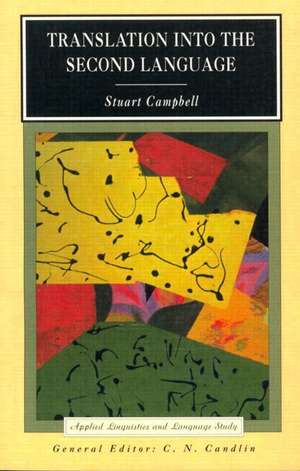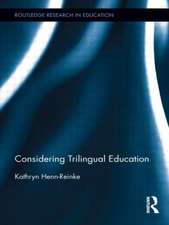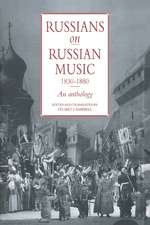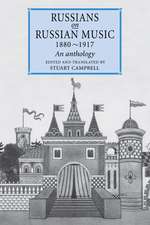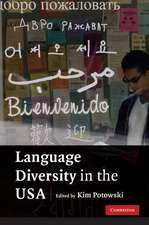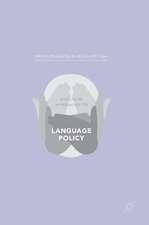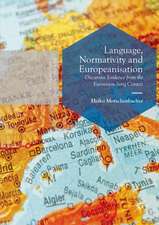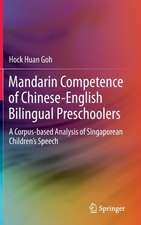Translation into the Second Language: Applied Linguistics and Language Study
Autor Stuart Campbellen Limba Engleză Paperback – 19 ian 1998
Rather than seeing translation into a second language as deficient output, this study adopts an interlanguage framework to consider L2 translation as the product of developing competence; learning to translate is seen as a special variety of second language acquisition. Through carefully worked case studies, separate components of translation competence are identified, among them the ability to create stylistically authentic texts in English, the ability to monitor and edit output, and the psychological attitudes that the translator brings to the task. While the case studies mainly deal with Arabic speakers undergoing translator training in Australia, the conclusions will have implications for translation into a second language, especially English, around the world.
Translation into the Second Language is firmly grounded in empirical research, and in this regard it serves as a stimulus and a methodological guide for further research. It will be a valuable addition for advanced undergraduate and postgraduate students of applied linguistics, translation theory, bilingualism and second language acquisition as well as those involved in teaching or practicing translation at a professional level.
| Toate formatele și edițiile | Preț | Express |
|---|---|---|
| Paperback (1) | 775.51 lei 43-57 zile | |
| Taylor & Francis – 19 ian 1998 | 775.51 lei 43-57 zile | |
| Hardback (1) | 1000.27 lei 43-57 zile | |
| Taylor & Francis – 10 iul 2016 | 1000.27 lei 43-57 zile |
Din seria Applied Linguistics and Language Study
-
 Preț: 309.50 lei
Preț: 309.50 lei - 15%
 Preț: 427.16 lei
Preț: 427.16 lei - 18%
 Preț: 838.33 lei
Preț: 838.33 lei - 18%
 Preț: 1000.27 lei
Preț: 1000.27 lei - 18%
 Preț: 1001.87 lei
Preț: 1001.87 lei - 18%
 Preț: 1000.27 lei
Preț: 1000.27 lei - 15%
 Preț: 498.47 lei
Preț: 498.47 lei - 15%
 Preț: 564.39 lei
Preț: 564.39 lei -
 Preț: 471.67 lei
Preț: 471.67 lei - 18%
 Preț: 1218.08 lei
Preț: 1218.08 lei -
 Preț: 431.95 lei
Preț: 431.95 lei - 18%
 Preț: 945.01 lei
Preț: 945.01 lei - 18%
 Preț: 1000.51 lei
Preț: 1000.51 lei -
 Preț: 475.70 lei
Preț: 475.70 lei - 18%
 Preț: 1000.27 lei
Preț: 1000.27 lei -
 Preț: 469.94 lei
Preț: 469.94 lei - 18%
 Preț: 1218.08 lei
Preț: 1218.08 lei -
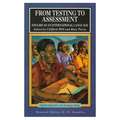 Preț: 469.34 lei
Preț: 469.34 lei - 18%
 Preț: 1000.27 lei
Preț: 1000.27 lei - 18%
 Preț: 1000.27 lei
Preț: 1000.27 lei - 15%
 Preț: 421.62 lei
Preț: 421.62 lei -
 Preț: 192.85 lei
Preț: 192.85 lei - 18%
 Preț: 1112.65 lei
Preț: 1112.65 lei - 18%
 Preț: 1000.27 lei
Preț: 1000.27 lei - 18%
 Preț: 1111.40 lei
Preț: 1111.40 lei - 18%
 Preț: 1000.27 lei
Preț: 1000.27 lei - 18%
 Preț: 1000.27 lei
Preț: 1000.27 lei - 18%
 Preț: 1003.43 lei
Preț: 1003.43 lei -
 Preț: 277.80 lei
Preț: 277.80 lei - 18%
 Preț: 1000.27 lei
Preț: 1000.27 lei - 23%
 Preț: 327.38 lei
Preț: 327.38 lei - 18%
 Preț: 1004.24 lei
Preț: 1004.24 lei - 15%
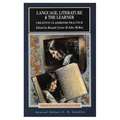 Preț: 563.42 lei
Preț: 563.42 lei - 18%
 Preț: 1000.27 lei
Preț: 1000.27 lei -
 Preț: 464.93 lei
Preț: 464.93 lei - 18%
 Preț: 1000.27 lei
Preț: 1000.27 lei - 18%
 Preț: 1000.27 lei
Preț: 1000.27 lei
Preț: 775.51 lei
Preț vechi: 945.75 lei
-18% Nou
Puncte Express: 1163
Preț estimativ în valută:
148.39€ • 155.35$ • 122.79£
148.39€ • 155.35$ • 122.79£
Carte tipărită la comandă
Livrare economică 07-21 aprilie
Preluare comenzi: 021 569.72.76
Specificații
ISBN-13: 9780582301887
ISBN-10: 0582301882
Pagini: 222
Dimensiuni: 138 x 216 x 11 mm
Greutate: 0.25 kg
Ediția:New.
Editura: Taylor & Francis
Colecția Routledge
Seria Applied Linguistics and Language Study
Locul publicării:Oxford, United Kingdom
ISBN-10: 0582301882
Pagini: 222
Dimensiuni: 138 x 216 x 11 mm
Greutate: 0.25 kg
Ediția:New.
Editura: Taylor & Francis
Colecția Routledge
Seria Applied Linguistics and Language Study
Locul publicării:Oxford, United Kingdom
Cuprins
Chapter 1: What is translation competence?
The scope of this work
The importance of translator-centred view on translation
Recent studies on translation competence
Possible ways of conceptualising translation competence
Psychological modelling
Translation quality assessment
Translation pedagogy
Translation competence and translation into a second language
Translation competence in an interlanguage framework
Some propositions about translation competence
Some remarks on data in translation competence research
Concluding remarks
Chapter 2: Challenging the insistence on translation into the first language
Aims
Translation and immigration
The supply-demand paradox in the Australian translation scheme
What is a second language? Some problems of definition
Industry need for translators into a second language
Translation labour market forces in Finland
The importance of modelling translation competence in translators into the second laguage
Concluding remarks
Chapter 3: A case study of candidates for translator education
Aims
The setting of the study
The language tests
The questionnaire data
Concluding remarks
Chapter 4: Translation into a second language and second language competence
Aims
The difference between translation into a first and a second language
Second language competence as an aspect of second language translation competence
Translation and written language
A case study approach to describing textual competence in translators into a second language
Concluding remarks
Chapter 5: Translation competence and grammar
Aims
The grammatical task of the second language translator
Biber's multi-feature/multi-dimensional approach to genre variation
The target texts and their processing
Comparisons with Biber's norms
Concluding remarks
Chapter 6: Translation competence and lexis
Aims
The disposition study
The lexical transfers study
Concluding remarks
Chapter 7: Monitoring translation performance
Aims
Issues in monitoring translation output
Quality of output: the assessment study
Monitoring ability: the editing study
Concluding remarks
Chapter 8: Towards a model of translation competence
Aims
Components of the model and their implications
Relationship of the model to other trends in translation research
Wider applicability of the model
Translation competence, pedagogy and assessment
Concluding remarks
References
Appendix 1: Examples of target texts with varying combinations of textual competence, risk-taking and persistence
Appendix 2: Real-time edited texts
The scope of this work
The importance of translator-centred view on translation
Recent studies on translation competence
Possible ways of conceptualising translation competence
Psychological modelling
Translation quality assessment
Translation pedagogy
Translation competence and translation into a second language
Translation competence in an interlanguage framework
Some propositions about translation competence
Some remarks on data in translation competence research
Concluding remarks
Chapter 2: Challenging the insistence on translation into the first language
Aims
Translation and immigration
The supply-demand paradox in the Australian translation scheme
What is a second language? Some problems of definition
Industry need for translators into a second language
Translation labour market forces in Finland
The importance of modelling translation competence in translators into the second laguage
Concluding remarks
Chapter 3: A case study of candidates for translator education
Aims
The setting of the study
The language tests
The questionnaire data
Concluding remarks
Chapter 4: Translation into a second language and second language competence
Aims
The difference between translation into a first and a second language
Second language competence as an aspect of second language translation competence
Translation and written language
A case study approach to describing textual competence in translators into a second language
Concluding remarks
Chapter 5: Translation competence and grammar
Aims
The grammatical task of the second language translator
Biber's multi-feature/multi-dimensional approach to genre variation
The target texts and their processing
Comparisons with Biber's norms
Concluding remarks
Chapter 6: Translation competence and lexis
Aims
The disposition study
The lexical transfers study
Concluding remarks
Chapter 7: Monitoring translation performance
Aims
Issues in monitoring translation output
Quality of output: the assessment study
Monitoring ability: the editing study
Concluding remarks
Chapter 8: Towards a model of translation competence
Aims
Components of the model and their implications
Relationship of the model to other trends in translation research
Wider applicability of the model
Translation competence, pedagogy and assessment
Concluding remarks
References
Appendix 1: Examples of target texts with varying combinations of textual competence, risk-taking and persistence
Appendix 2: Real-time edited texts
Descriere
This is the first study to explore the phenomenon of translation into a second language. Rather than seeing translation into a second language as deficient output, this study adopts an interlanguage framework to consider L2 translation as the product of developing competence; learning to translate is seen as a special variety of second language acquisition. Through carefully worked case studies, separate components of translation competence are identified, among them the ability to create stylistically authentic texts in English, the ability to monitor and edit output, and the psychological attitudes that the translator brings to the task.
